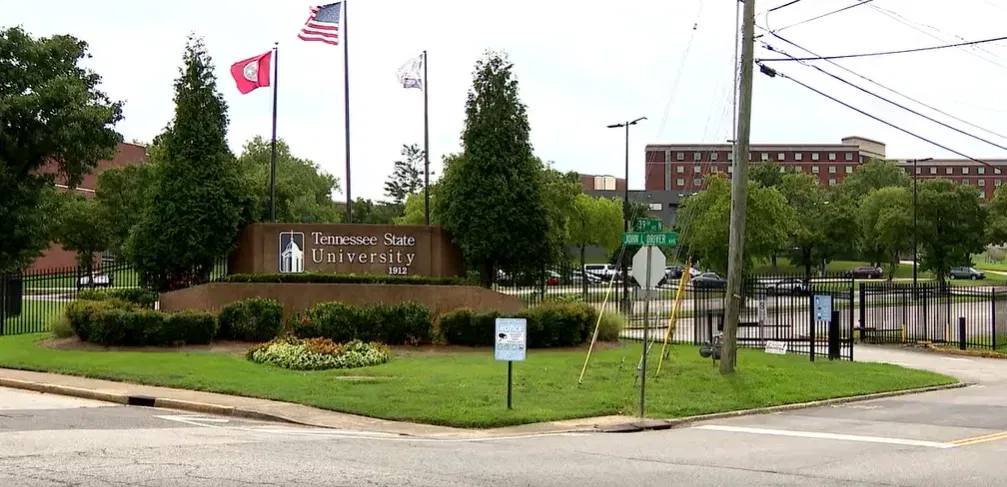TSU Is “Out of Money” Amid Longstanding Underfunding, Leadership Missteps

NASHVILLE, TN – Tennessee State University (TSU), a historically Black institution, is grappling with a financial crisis that has left it nearly unable to make payroll, forced layoffs of over 100 employees, and drawn sharp criticism of past leadership. While current state officials cite leadership failures and mismanagement as the primary cause, others point to decades of systemic underfunding by the state of Tennessee, rooted in racial inequities, as a significant factor.
Historical Underfunding: A Root Cause
A federal report from 2021 estimated that TSU was underfunded by as much as $2.1 billion over its history, including $544 million in the past six decades alone. Historically Black colleges and universities (HBCUs) like TSU were supposed to receive funding comparable to their predominantly white counterparts under federal land-grant mandates. However, state funding disparities have left TSU struggling to provide resources and infrastructure comparable to other institutions.
Representative Sam McKenzie, chair of the Tennessee Black Caucus of State Legislators, emphasized the role of racial inequities in TSU’s financial woes. “We have to acknowledge the past, and let’s grow from that. Let’s figure out what TSU did wrong, but let’s also figure out what the state of Tennessee did wrong,” McKenzie said. Federal officials echoed these concerns, stating that “inequitable funding” has created a severe financial gap.
Leadership Failures and Financial Mismanagement

The university’s challenges were compounded by what state officials have described as mismanagement by TSU’s previous administration and board. Former TSU President Glenda Glover, who signed an $800,000 contract upon her departure, has been heavily criticized for decisions made during her tenure. State leaders, including House Speaker Cameron Sexton, have pointed to financial audits that revealed inadequate planning, especially during a surge in student enrollment a few years ago.
“Why would you continue to pay her a lot of money to advise on a situation that we’re dealing with because of her leadership when she was at the helm of the university?” Sexton questioned. He referred to an audit that detailed scholarship promises made to a record number of students, funded in part by one-time federal dollars. TSU could not honor its commitments when those funds ran out, leading to significant enrollment declines.

Interim President Ronald Johnson acknowledged these challenges, calling the university’s financial state “crippled” due to a lack of checks and balances under the previous administration. “The legacy of that poor decision-making is going to be with us for some time,” Johnson said.
Current Crisis: Layoffs and Financial Restructuring
In recent months, TSU has received $30 million in emergency funding from the state, but officials warn that the aid is a short-term solution. The university laid off 114 staff members in October to save $11 million, with more layoffs expected. Tennessee Comptroller Jason Mumpower has urged TSU to consider drastic measures, including selling parts of its downtown Nashville campus, which he described as “decrepit but valuable real estate.”
“You’re here to take it down to the studs and rebuild it,” Mumpower told TSU leadership during a recent State Building Commission meeting. “The pressure is still on. The previous administration and trustees have driven this university to a breaking point.”
Moving Forward
TSU officials are set to return to the commission in December to outline their financial recovery plans. While acknowledging the financial assistance provided this year, state leaders maintain that structural changes are necessary to stabilize the university. Suggestions include layoffs, restructuring low-enrollment programs, and long-term financial planning.
While the state’s critique of TSU leadership is sharp, many in the community argue that the institution’s struggles are deeply rooted in systemic racism and inequitable funding. As Representative McKenzie said, “Acknowledging the past” is critical to ensuring that TSU not only survives but thrives in the future.
About Tennessee State University
Tennessee State University, founded in 1912, is one of the nation’s premier historically Black universities. Despite enduring decades of funding disparities, TSU remains committed to providing high-quality education and opportunities to its students. For more information, visit the TSU Website.
Photos: WZTV


